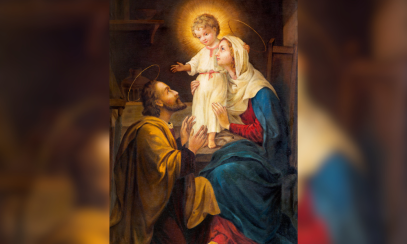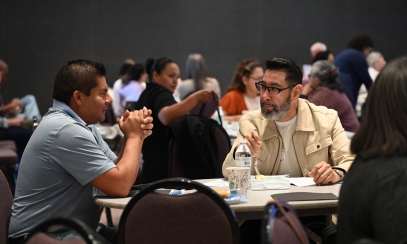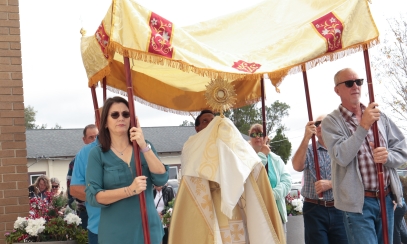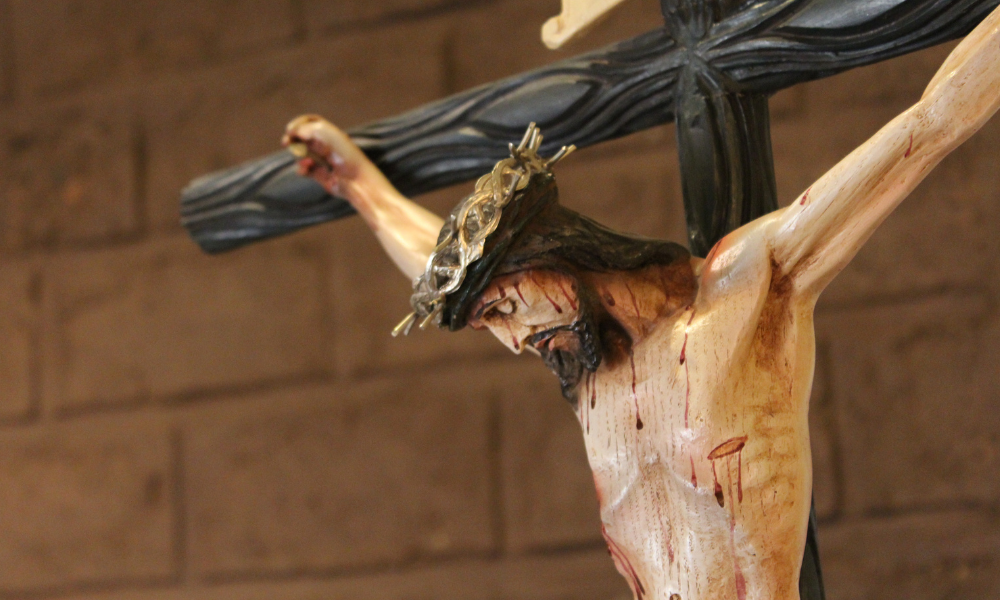
“Seven Last Words” a series, Part One
February 21, 2023 | During Lent, we turn our focus to the greatest sermon of all time, the one which Jesus gave from the pulpit of the cross. Since Jesus made seven profound statements while being crucified, his sermon is often referred to as the “Seven Last Words.”
February 21, 2023 | During Lent, we turn our focus to the greatest sermon of all time, the one which Jesus gave from the pulpit of the cross. Since Jesus made seven profound statements while being crucified, his sermon is often referred to as the “Seven Last Words.”
Starting on Ash Wednesday, Gulf Coast Catholic will publish a seven-part series focused on each of the last seven messages of Jesus from the cross. The series is written by Father James Ruhlin, Pastor of Saint Michael the Archangel Catholic Church in Hudson Fl.
Hopefully this reflection will inspire you to contemplate the depths of the Lord’s message of love from the cross.
The first word of our Lord from the cross is: “Father, forgive them, for they know not what they do.” Forgiveness is a key component of love. It is through our forgiveness that we are able to understand and appreciate mercy. Coupled with the willingness of Jesus to forgive his tormentors is the fact that they did not know what they were doing. The sinners who put Jesus on the cross were ignorant of the true import of their actions. The soldiers personally held no ill will toward Christ; they were simply following orders. This was how they normally treated condemned men, and they believed that Jesus truly deserved it.
The soldiers and the mob didn’t know that they were killing the Son of God. The Jewish leaders had deceived them into believing that Jesus was a fake and a troublemaker. In praying “Father, forgive them,” Jesus revealed God’s infinite mercy; he still loved them and would forgive them. On the cross, Jesus provided forgiveness for all those who would ever believe in him. Jesus paid the penalty for the sins that we commit in our ignorance, and even the ones we have committed deliberately. When we realize this then we, too, become an answer to Jesus’ prayer: “Father, forgive them.”
Ignorance plays a major role in the forgiveness process: ignorance of ourselves and ignorance of others. We know nothing about the inside of our neighbor’s heart and yet we refuse to forgive. It’s sad when a person cannot remember their wrongdoing, yet they know all of their neighbor’s sins and weaknesses. It would be less wrong to criticize others if we first criticized ourselves, for if we first turned the searchlight into our own souls, we would never feel we had a right to turn it on the soul of anyone else.
A wise man once said, “If we met ourselves in others, we would hate them.” The harder we are on ourselves, the easier we will be on others. The man who has never learned to obey knows not how to command and the man who has never disciplined himself knows not how to be merciful.
Unfortunately, in today’s society, most people feel like they do no wrong; they deceive themselves into thinking that they are good people and therefore they don’t sin so they don’t need forgiveness. They think they need no pardon; hence, no one else should ever have it. The man who knows not his own guilt before God is apt to be most unforgiving to others.
Archbishop Fulton Sheen sums up the forgiveness, which Christ invites us to practice, in the following quote:
“Forgive your Pilates, who are too weak to defend your justice; forgive your Herods, who are too sensual to perceive your spirituality; forgive your Judases, who think worth is to be measured in terms of silver. Forgive them, for they know not what they do.”
Lent is the perfect time of year to settle our spiritual accounts by practicing the type of forgiveness which Christ is calling us to achieve. Now is the time to forgive: forgive yourself for your shortcomings; forgive those who have offended you; forgive from the heart and live in the freedom of God’s mercy. I wish you all a very fruitful Lent.
God bless, Fr. Ruhlin
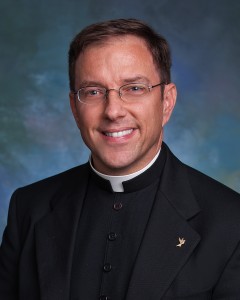
Father James Ruhlin is the Pastor of Saint Michael the Archangel Catholic Church in Hudson Fl.

